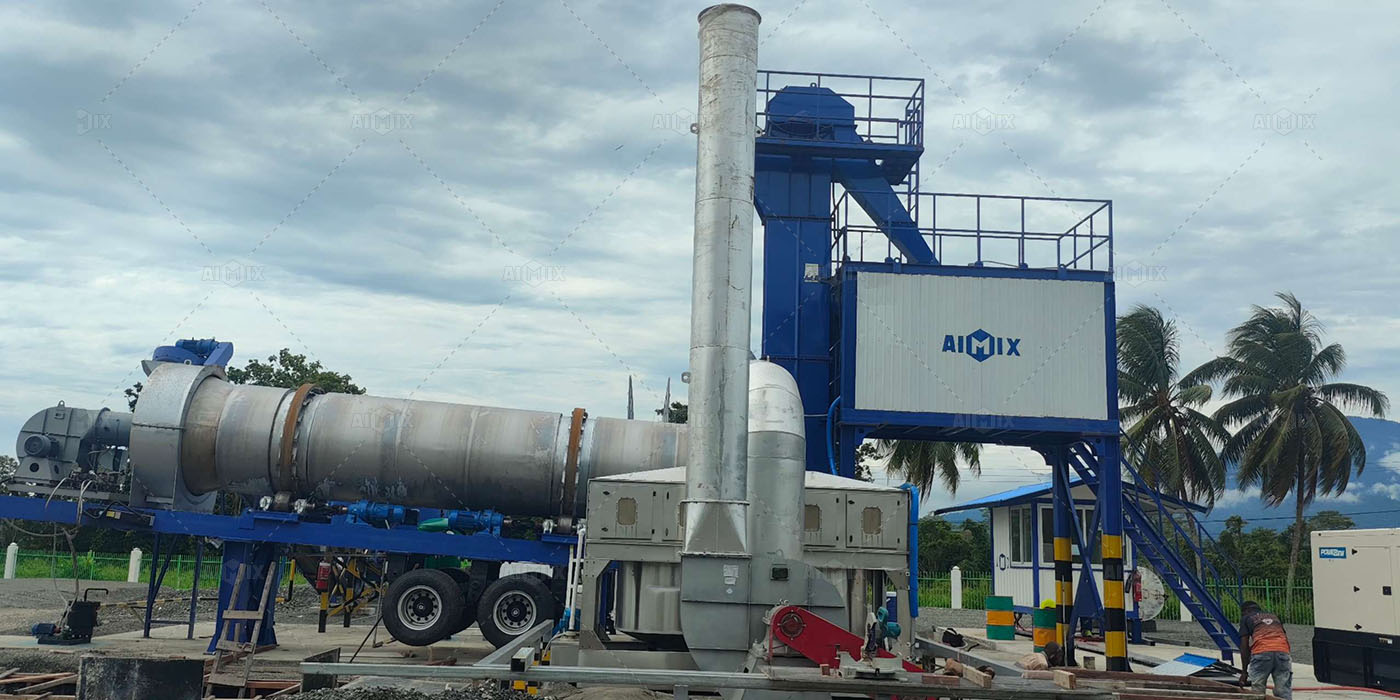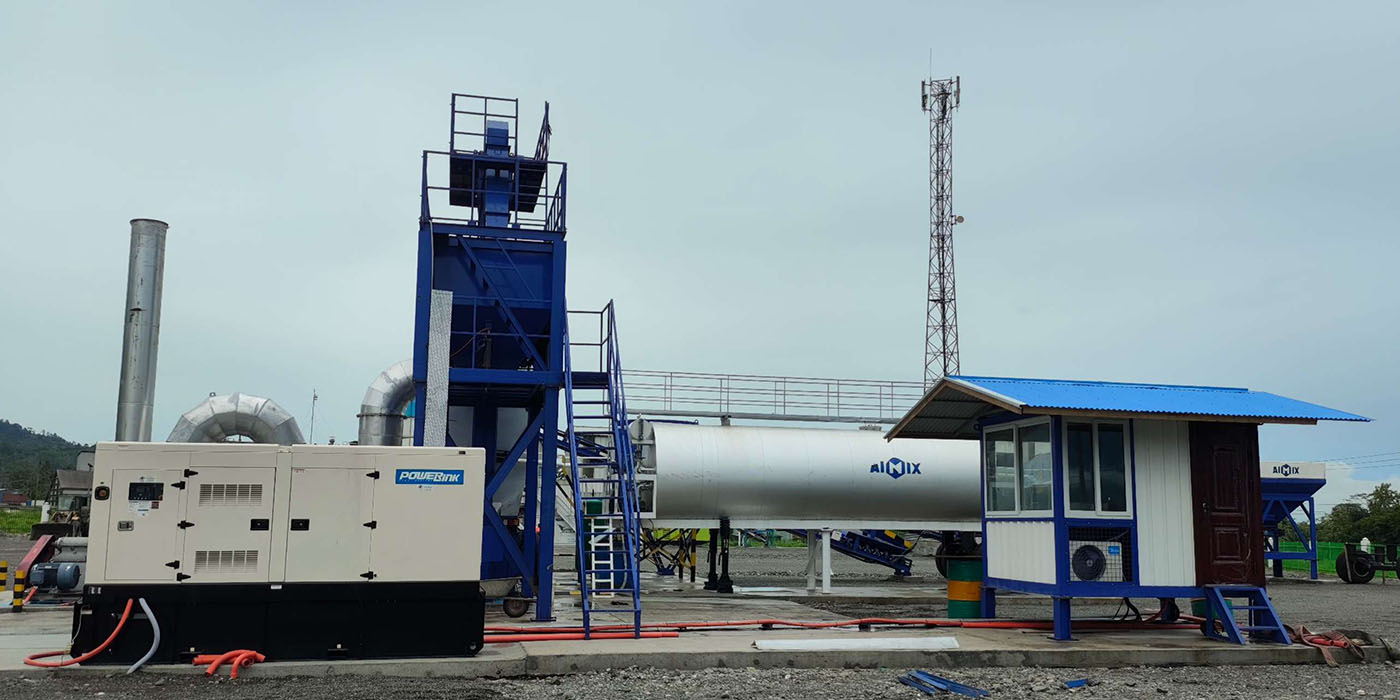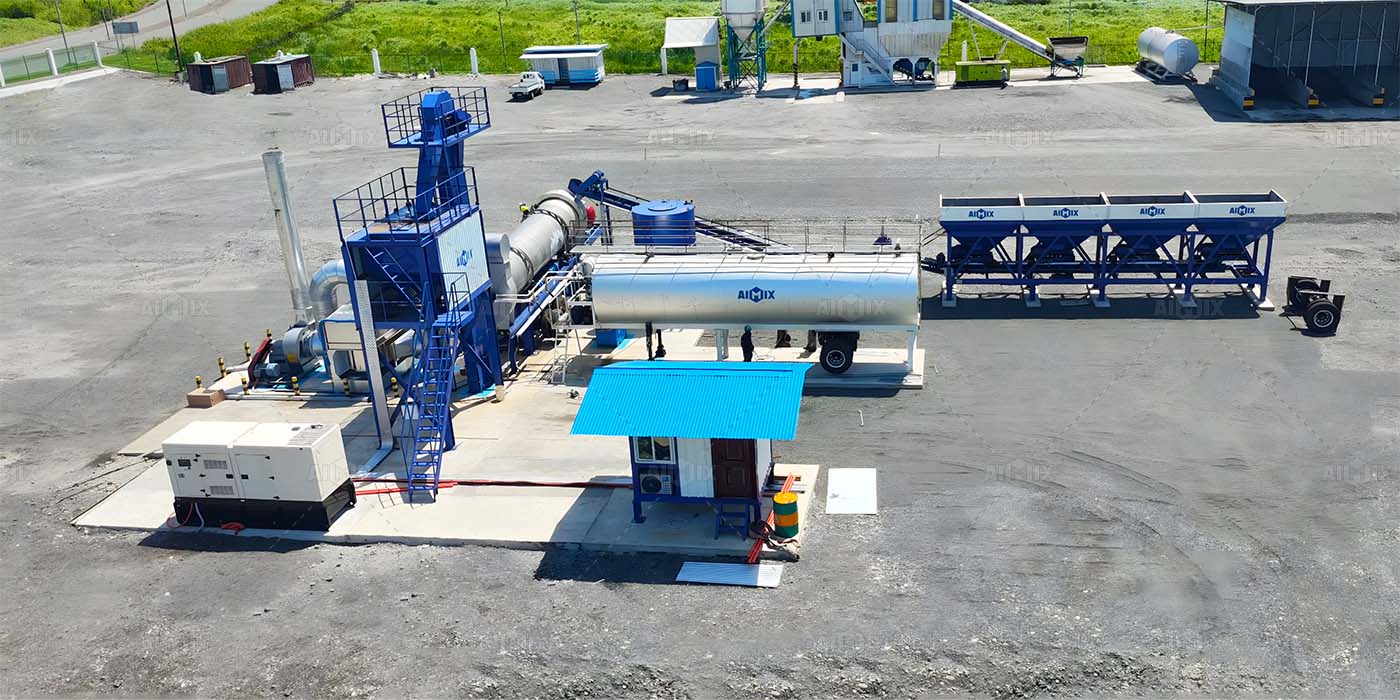For contractors managing several small road or paving projects within a 30 km radius, choosing the right asphalt plant capacity is crucial. The wrong plant can cause delays, increase costs, and reduce overall efficiency. A mobile asphalt plant offers flexibility and sufficient output for multiple small-scale sites, but its suitability depends on project specifics, logistics, and operational planning.

Understanding 60 TPH Mobile Asphalt Plants
A 60 TPH mobile asphalt plant is designed for moderate production needs. Unlike stationary plants, mobile plants can move between sites quickly, reducing transportation time and fuel costs. Their compact design allows installation in tight spaces, making them ideal for urban or semi-urban projects.
These plants typically come with integrated feeding, drying, mixing, and storage systems. Advanced control systems ensure precise mixing, consistent asphalt quality, and reduced material wastage. Contractors who choose a portable asphalt mixing plant can produce asphalt close to the construction site, maintaining freshness and quality.
Production Capacity vs. Project Demand
To assess if a 60 TPH plant meets your needs, evaluate your daily asphalt demand at each site. For small road segments or parking lots, the plant can easily produce enough asphalt to complete multiple sites per day, considering a 6–8 hour working window. If each project requires 200–400 tons of asphalt, the plant can supply one site within a few hours and then move to the next.
Moreover, because the plant is mobile, you can schedule production sequentially. For example, morning production for Site A, midday delivery to Site B, and afternoon work at Site C. This operational flexibility ensures that multiple sites within a 30 km radius can be served efficiently without overloading the plant.

Logistics and Transportation Efficiency
Even with sufficient capacity, transportation logistics impact efficiency. A 60 TPH mobile plant reduces haul distance compared to stationary plants located far from sites. Asphalt can be delivered promptly in hot condition, maintaining workability. Additionally, the mobile design allows relocation in a few hours, avoiding downtime and increasing overall project efficiency.
Transitioning from one site to another requires planning: proper road access, sufficient storage space, and coordination with paving crews. Contractors who optimize these factors can achieve high productivity while minimizing costs. Many local contractors search for asphalt mixing plants near me to ensure quick delivery and minimal transport distance.
Cost Considerations and ROI
Investing in a 60 TPH mobile asphalt plant balances upfront cost and operational benefits. It costs less than a large stationary plant but still meets multiple small site demands. Reduced transportation and quicker project turnover lead to faster return on investment. Contractors can also save on labor, fuel, and material wastage.
In addition, mobile plants require lower maintenance and can operate in diverse environments. For contractors managing multiple small-scale projects, the plant ensures a reliable asphalt supply while keeping operational costs in check.

Operational Advantages for Contractors
Using a 60 TPH mobile asphalt plant offers several practical advantages:
- Quick relocation between sites reduces downtime.
- Precise control over asphalt mix improves quality consistency.
- Compact footprint allows installation in limited spaces.
- Supports multiple small projects simultaneously with proper scheduling.
These benefits translate into smoother project execution, reduced delays, and increased client satisfaction.
Conclusion: Is It the Right Choice?
For contractors handling multiple small sites within a 30 km radius, a 60 TPH mobile asphalt plant is generally sufficient. Its production capacity, mobility, and operational efficiency make it a practical solution for timely and cost-effective asphalt supply. By optimizing logistics and scheduling, contractors can maximize productivity and achieve high-quality results on every site.
If you are looking for a reliable 60 TPH mobile asphalt plant with proven performance, our latest models offer robust construction, user-friendly controls, and flexible configurations to match your project needs. Contact us today to discuss how we can help you achieve efficient, high-quality asphalt production for all your small-scale sites.